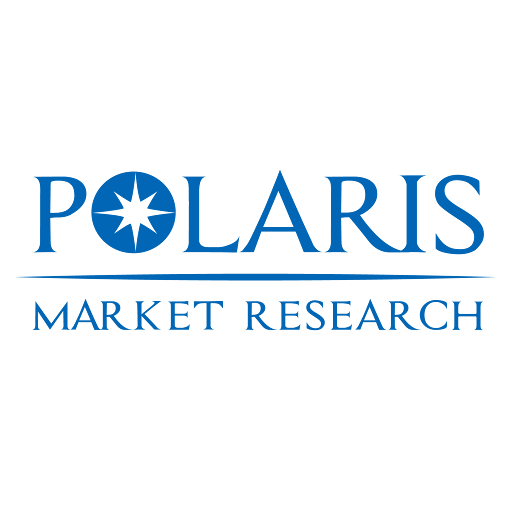Enterprise Demand for Transparency and Accuracy Fuels Sales Compensation Software Adoption

The global sales compensation software market, valued at USD 2,292.00 million in 2022, is expected to grow at a compound annual growth rate (CAGR) of 9.7% during the forecast period, driven by the increasing complexity of sales incentive plans, rising demand for real-time performance visibility, and the shift toward cloud-based enterprise systems. Sales compensation software—digital platforms that automate the design, calculation, management, and analysis of sales commissions, bonuses, and incentives—has become a strategic tool for organizations seeking to align salesforce motivation with business objectives, improve transparency, and reduce administrative overhead. This growth is shaped by pronounced regional disparities in labor market dynamics, regulatory frameworks, and corporate digital maturity. North America, led by the United States, dominates the market, accounting for over 50% of global revenue. The U.S. leadership is anchored in a highly competitive sales-driven economy, strong venture capital investment in SaaS technologies, and widespread adoption of performance-based pay structures across technology, healthcare, and financial services sectors. Federal initiatives such as the CHIPS and Science Act and the Inflation Reduction Act (IRA) are accelerating investment in sales teams for clean energy, semiconductor, and advanced manufacturing markets, reinforcing the need for accurate, auditable, and agile compensation systems.
In contrast, Europe’s sales compensation software market is characterized by stringent data privacy regulations under the General Data Protection Regulation (GDPR), which govern the processing of employee financial data, commission records, and performance metrics. Countries such as Germany, France, and the UK enforce strict limits on algorithmic transparency, workforce surveillance, and automated decision-making, prompting vendors to adopt explainable logic engines, audit trails, and consent-based data handling. Regional manufacturing trends indicate a strong presence of industrial and B2B firms using compensation platforms to manage complex, multi-tiered incentive plans across distributed sales teams—particularly in Germany and Scandinavia, where engineering excellence supports integration with ERP and CRM systems like SAP and Microsoft Dynamics. However, the fragmented nature of labor laws and collective bargaining agreements across EU member states—especially in Eastern Europe—creates variability in compensation structures and compliance requirements. Cross-border supply chains for HR and finance software, cloud infrastructure, and integration services are well-integrated within the EU single market, though Brexit has introduced customs friction and re-certification requirements for UK-based distributors. Additionally, the European Green Deal and Digital Europe Programme are influencing demand for compensation platforms that support green sales targets and ESG-linked incentives.
Read More @ https://www.polarismarketresearch.com/industry-analysis/sales-compensation-software-market
Asia Pacific is the fastest-growing region, fueled by rapid industrialization, government-led digital transformation, and rising investment in enterprise software in China, India, and Southeast Asia. China’s “Digital China” strategy and the 14th Five-Year Plan prioritize digitalization of sales operations, creating demand for enterprise-grade compensation tools in e-commerce, fintech, and advanced manufacturing. India’s National Digital Communications Policy (NDCP) and the Production-Linked Incentive (PLI) scheme are accelerating investment in digital sales infrastructure, particularly in tier-1 and tier-2 cities. Regional manufacturing trends show a growing preference for localized, cost-optimized software tailored to price-sensitive SMEs and public sector clients, while still supporting innovation in mobile-first interfaces and vernacular language support. Market penetration strategies by global players often involve partnerships with local CRM providers, telecom operators, and system integrators to build trust and ensure regulatory alignment.
Geopolitical and trade-specific factors, including U.S.-China technology restrictions and export controls on dual-use financial software, are influencing sourcing decisions and favoring regionalization of development. Additionally, concerns over data sovereignty, pay equity, and employee trust are prompting manufacturers to adopt federated learning, on-premise deployment options, and third-party audits to ensure compliance and transparency. As the global demand for fair, accurate, and motivating sales compensation intensifies, the ability to deliver secure, compliant, and intelligent software solutions across diverse regulatory and operational environments will be a key determinant of competitive success.
Competitive Landscape:
- Xactly Corporation (a Zaino Companies brand)
- Salesforce Inc. (via Salesforce Sales Cloud and Incentive Compensation Management)
- Oracle Corporation (Oracle Incentive Compensation)
- SAP SE (SAP Commissions)
- Zuora, Inc. (via RevPro and CPQ)
- Anaplan, Inc. (a Thoma Bravo portfolio company)
- Payscale, Inc.
- Better Sales Comp (a unit of NICE Ltd.)
More Trending Latest Reports By Polaris Market Research:
Waste Recycling Services Market
Net-Zero Energy Buildings Market
Managed Detection and Response Market
- AI
- Vitamins
- Health
- Admin/office jobs
- News
- Art
- Causes
- Crafts
- Dance
- Drinks
- Film
- Fitness
- Food
- Spellen
- Gardening
- Health
- Home
- Literature
- Music
- Networking
- Other
- Party
- Religion
- Shopping
- Sports
- Theater
- Wellness


